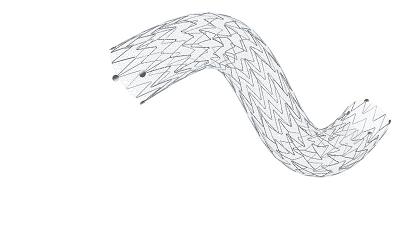
November 18, 2016 — InspireMD Inc. announced in mid-October the online publication of positive clinical data in a new independent study that evaluated the company’s CGuard embolic protection system (EPS) in patients with symptomatic or high-grade asymptomatic internal carotid artery (ICA) stenosis.
The study, entitled “Clinical Results and Mechanical Properties of the Carotid CGuard Double-Layered Embolic Prevention Stent,” was performed by Prof. Christian Wissgott, M.D. It was published in the Journal of Endovascular Therapy online-ahead-of-print and is available digitally on the journal’s OnlineFirst website section. The OnlineFirst section also includes an accompanying editorial written by Prof. Piotr Musialek, M.D., entitled “Carotid Artery Revascularization for Stroke Prevention: A New Era,” which underscores the use of CGuard EPS as a novel approach to potentially reducing the risk of stroke by avoiding the risks associated with conventional carotid stenting.
Wissgott, assistant director at Westkustenklinikum, Heide, Germany, independently evaluated CGuard properties against other carotid stents and conducted a study in 30 consecutive patients with ICA disease. The average stenosis of the treated arteries was 84 percent with a mean lesion length of 17 mm. The majority of the patients (83 percent) had symptomatic disease. Patients were followed for six months post-procedure and were assessed using a number of variables, including stroke, change in modified Rankin Scale (mRS), CGuard EPS patency, and new ipsilateral lesions as measured by diffusion weighted-magnetic resonance imaging (DW-MRI). Key findings from the six-month study included:
- One hundred percent success in implanting the CGuard EPS;
- No peri- or post-procedural complications;
- No deaths, major adverse events, minor or major strokes, or new neurologic symptoms during the six months following the procedure;
- Modified Rankin Scale improved for the symptomatic patients from 1.56 prior to the procedure to 0 afterwards;
- All vessels treated with the CGuard system remained patent (open) at six months; and
- DW-MRI performed in 19 of 30 patients found no new ipsilateral lesions after 30 days and after six months compared with the baseline DW-MRI studies.
For more information: www.jet.sagepub.com


 January 05, 2026
January 05, 2026 









